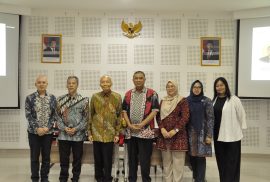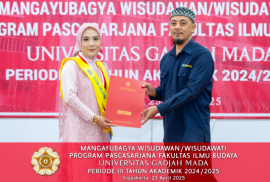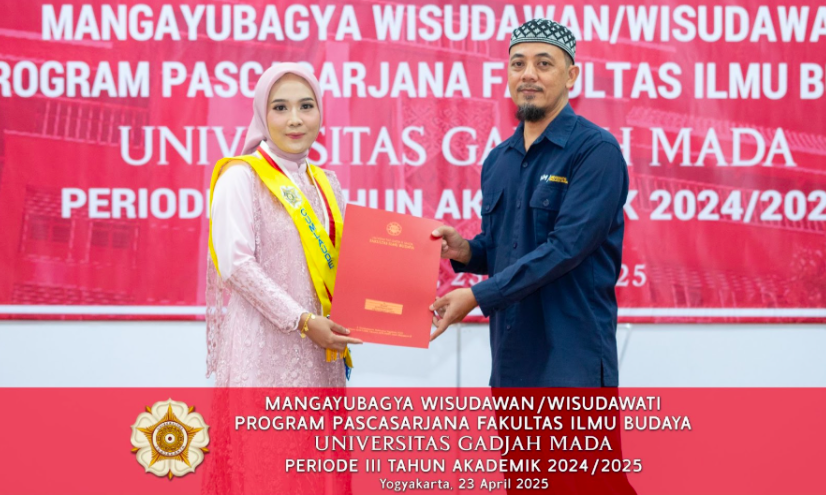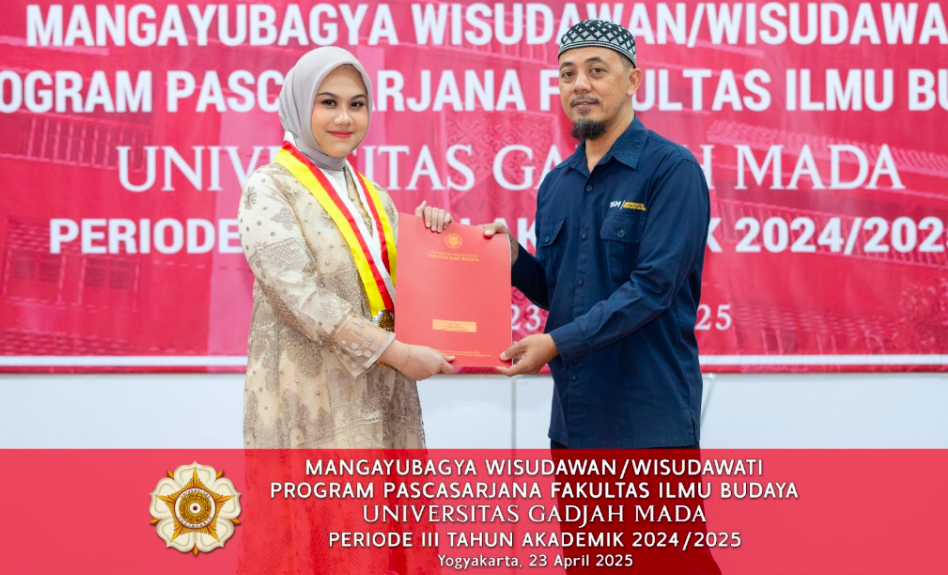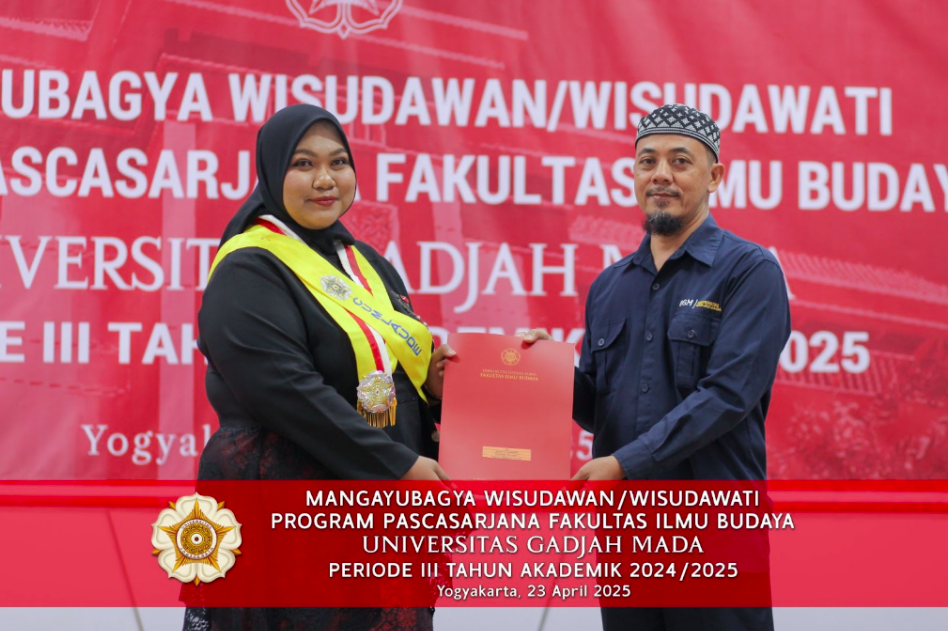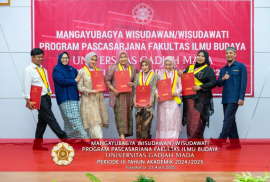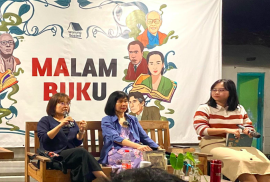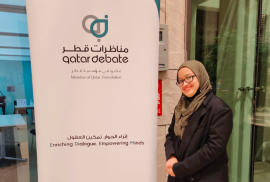Yogyakarta, 30 April 2025 — The Faculty of Cultural Sciences at Universitas Gadjah Mada (FIB UGM) held a book discussion on Trilogi Kartini on Wednesday (30/4), from 08.30 to 11.20 WIB in Room 709, Soegondo Building, FIB UGM. The event featured Prof. Dr.-Ing. Wardiman Djojonegoro, former Minister of Education and Culture of the Republic of Indonesia (1993–1998) and author of Trilogi Kartini, as the main speaker. The discussion was initiated by Prof. Dr. Bambang Purwanto, M.A., and moderated by Dr. Suzie Handajani, M.A.
The programme opened with welcoming remarks from the Dean of FIB UGM, Prof. Dr. Setiadi, S.Sos., M.Si., followed by a video greeting from the Minister of Finance of the Republic of Indonesia, Sri Mulyani Indrawati, Ph.D. In a reflective and solemn atmosphere, two students from FIB UGM—Bulan Churniati (English Literature) and Febi Setiyawati (Cultural Anthropology)—read excerpts from R.A. Kartini’s letters to E.H. Zeehandelaar and R.M. Abendanon-Mandri, reaffirming Kartini’s enduring spirit of emancipation and her forward-thinking ideas.
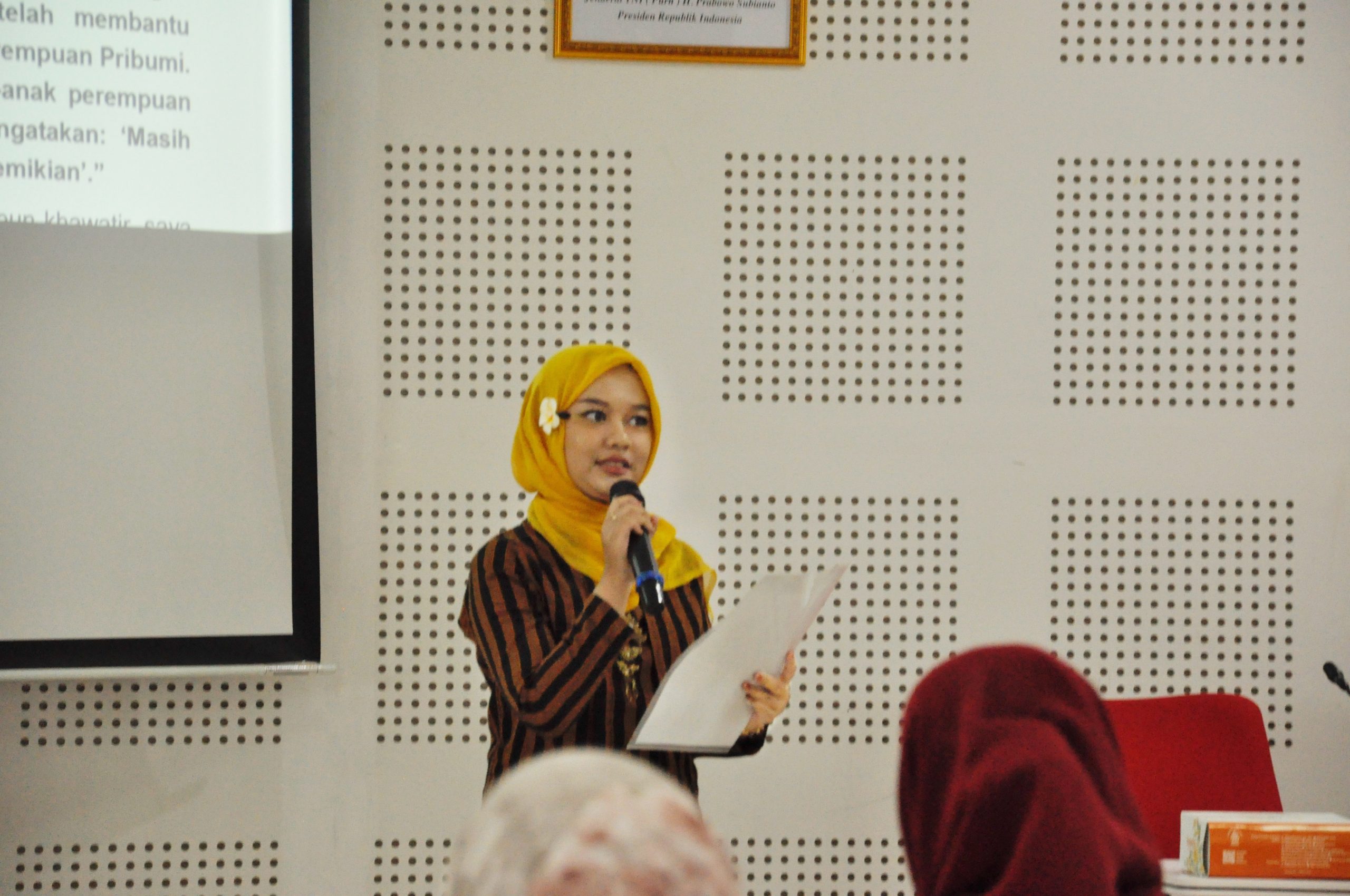
Bulan Churniati (English Literature) read Excerpt 6 from Kartini’s letter to R.M. Abendanon-Mandri.
In his presentation, Prof. Wardiman emphasised that Trilogi Kartini was compiled to open broader understanding of Kartini’s thoughts—not merely as a symbol of Indonesian womanhood, but as a critical and progressive thinker whose vision surpassed her time. Prof. Bambang added that it is essential to position Kartini as an active historical subject who helped shape Indonesia’s cultural and educational discourse.
The discussion proceeded interactively, with active participation from members of the academic community—students, senior lecturers, and the general public. Three participants posed critical questions, ranging from Kartini’s religious views to the ways in which her commemoration could be reimagined. The event concluded with a Q&A session and the presentation of a token of appreciation by the Vice Dean for Research, Community Service, Collaboration, and Alumni, Mimi Savitri, M.A., Ph.D.
Through this event, FIB UGM reaffirmed its commitment to nurturing intellectual vitality, diversity of thought, and respect for national cultural figures through inclusive and transformative discourse.
[Public Relation Faculty of Cultural Sciences, Bulan Churniati]

